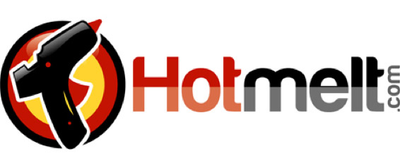Industrial adhesives service thousands of different companies across a number of industries, including packaging, woodworking, graphic art, and more. Although some forms are more commonly used than others, all of them are designed to serve a specific application depending on the job or product you are dealing with. While hot melt adhesives tend to be the most popular, other forms like water-based and reactive adhesives are also available, and can offer you the same quality results as a hot melt adhesive, depending, again, on the job at hand.
For this article, we will be taking a closer look at water-based adhesives, the types that are available on the market, their applications, and what industries are currently utilizing water-based adhesives on a regular basis. Let’s get started.
What Are Water-Based Adhesives?
Before we can go into details about water-based adhesives, we first have to understand what they are. An adhesive, or glue, is a mixture, either in liquid or semi-liquid form that is used to bond one surface to another. Most all adhesives are polymer based, and are made from either natural or synthetic sources. Adhesives are also specially formulated for specific applications, depending on the type of adhesive and the industry you are working in.
Water-based adhesives are supplied as pre-mixed solutions, or are formulated as dry powders, which producers and distributors must then mix with water in order to obtain its adhesive properties. These properties are obtained when water is either lost from the glue line by evaporation or is absorbed by the substrate. Because of this, it is important to use at least one permeable substrate when applying water-based adhesives.
Because the polymers in water-based adhesives are water soluble, the bonds that are formed between surfaces are more susceptible to moisture and water, although some kinds, like plant and casein glues, are made with a base material that is insoluble at room temperature. Although this has improved the resistance of such adhesives to the effects of water and moisture, water-based solution adhesives are still perishable, and therefore contain a shorter storage life.
Types of Water-Based Adhesives and Their Differences
There are four main types of water-based adhesives: vegetable glues, animal/protein glues, resin cements, and latex cements. Each of these different adhesives is uniquely formulated to serve their own specific purposes. Depending on which adhesive you’re using, the resulting bond will come out as either a solid resin or a more film-like finish, but all are solvent free, making them safe to use in close quarters and non-ventilated areas. Let’s take a closer look at each of these types of water-based adhesives.
1. Vegetable Glue/Starch (Dextrin) Adhesives
Vegetable adhesives are one of the more popular water-based adhesives types. These adhesives contain a starch base and result in a more frail finish. For that reason they are commonly used for in the paper industry for such applications as bookbinding. These adhesives are known to be very durable when used with material like paper, but their vegetable base does make them more susceptible to breakdown when exposed to water.
2. Animal/Protein (Caesin) Adhesives
Animal, or protein adhesives are derived from either animal organs that are processed specifically for the purpose of making hot glue, or from proteins found in animal milk, which is used to make casein glue. While hot animal glue is primarily for quick-fix/quick-set applications, casein glue, which is more resistant to water and moisture, is used primarily in the beer and wine bottling industry.
3. Resin/Polymer Acetate Adhesives
The primary components in resin water-based adhesives are vinyl acetate, ethylene vinyl acetate, and acrylic resin emulsion polymers. Emulsions are mixes of liquids that cannot really be blended. To make these kinds of water-based adhesives, water is mixed with the polymers polyvinyl acetate (PVA) and ethylene vinyl acetate (EVA) to produce a bright white liquid mixture. Once the adhesive has been applied and allowed to dry, however, it produces a clear, flexible bond that is also used for paper, but also for wood and plastic.
4. Latex Adhesives
Latex cements, another group of water-based adhesives, are made from emulsified elastomers, or rubbers. Like polymer adhesives, latex adhesives must be applied to the substrate surface and allowed to dry into either a solid bond, or a more crude, flexible bond, depending on the formulation. These types of water-based adhesives are primarily used for bonding stamps, envelopes, fabric, leather, and wood.
Major Markets
There are many industries and specific applications that benefit from the use of water-based adhesives. These include the packaging and bottling industries, paper, woodworking, plastic, and fabric industries. As was noted above, some specific applications for water-based adhesives within these various industries include envelope and stamp production, bookbinding, and labeling for alcoholic and soft drink beverage companies. Water-based adhesives also serve an important purpose in product assembly in industries like packaging and woodworking (furniture products and boxes), as well as lamination applications in the graphic arts industry.
Water-based adhesives are an excellent tool for many industries owing to its variety, flexibility, and economic practicality. These adhesives set quickly and form powerful bonds that, unless exposed directly to excess water or moisture, will remain strong for an extended period of time. Water-based adhesives can be applied using several dispersion methods, including spray and roll dispersion, and, with the right formulation and viscosity, can help you handle any application that comes your way. For further assistance, concerns, or to find out more about these types of adhesives, please visit www.hotmelt.com or call us at (877) 933-3343.

